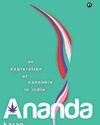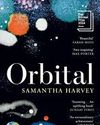
In 2018, when a section from Moustache—the debut novel by Malayalam writer S. Hareesh—was first serialized as Meesha for a magazine, right-wing groups threatened him and called for boycotts. They found a small passage on temple-going women objectionable. Hareesh, who works in the revenue department, withdrew publication, but later that year the Supreme Court dismissed a plea to ban the work. Moustache has since won the prestigious ₹25-lakh JCB Prize for Literature last month.
How did the novel Moustache take shape?
The main character, Vavachan, is based on a man who lived in my village. It is after hearing that this man had grown his moustache for the role of a policeman in a play and had refused to shave it off afterwards that I decided to write the novel. The other inspiration for the novel is the collection of folk songs known as ‘Chengannooradi’.
How do the land and landscape emerge as characters?
I was born and grew up in northern Kuttanad, Kerala—a place with several peculiarities. It is a place where the land was built up from lakes and swamps, where farming is done below sea level, a land that floods three times a year. Life here is amphibious, inextricably linked to its birds, fish and the agricultural calendar. From the time I began writing, I have wanted to write about this place. Vavachan’s story could not be told without also telling the story of the land. Pursued by his tormentors, it is to the labyrinthine land created by his ancestors that he escapes. I also have a special affinity to stories in which land itself is a character. We are embodied only through space and time.
Denne historien er fra December 2020-utgaven av Reader's Digest India.
Start din 7-dagers gratis prøveperiode på Magzter GOLD for å få tilgang til tusenvis av utvalgte premiumhistorier og 9000+ magasiner og aviser.
Allerede abonnent ? Logg på
Denne historien er fra December 2020-utgaven av Reader's Digest India.
Start din 7-dagers gratis prøveperiode på Magzter GOLD for å få tilgang til tusenvis av utvalgte premiumhistorier og 9000+ magasiner og aviser.
Allerede abonnent? Logg på

ME & MY SHELF
Siddharth Kapila is a lawyer turned writer whose writing has focussed on issues surrounding Hinduism. His debut book, Tripping Down the Ganga: A Son's Exploration of Faith (Speaking Tiger) traces his seven-year-long journey along India's holiest river and his explorations into the nature of faith among believers and skeptics alike.

EMBEDDED FROM NPR
For all its flaws and shortcomings, some of which have come under the spotlight in recent years, NPR makes some of the best hardcore journalistic podcasts ever.

ANURAG MINUS VERMA PODCAST
Interview podcasts live and die not just on the strengths of the interviewer but also the range of participating guests.

WE'RE NOT KIDDING WITH MEHDI & FRIENDS
Since his exit from MSNBC, star anchor and journalist Mehdi Hasan has gone on to found Zeteo, an all-new media startup focussing on both news and analysis.

Ananda: An Exploration of Cannabis in India by Karan Madhok (Aleph)
Karan Madhok's Ananda is a lively, three-dimensional exploration of India's past and present relationship with cannabis.

I'll Have it Here: Poems by Jeet Thayil, (Fourth Estate)
For over three decades now, Jeet Thayil has been one of India's pre-eminent Englishlanguage poets.

Orbital by Samantha Harvey (Penguin Random House India)
Samantha Harvey became the latest winner of the Booker Prize last month for Orbital, a short, sharp shock of a novel about a group of astronauts aboard the International Space Station for a long-term mission.

She Defied All the Odds
When doctors told the McCoombes that spina bifida would severely limit their daughter's life, they refused to listen. So did the little girl

DO YOU DARE?
Two Danish businesswomen want us to start eating insects. It's good for the environment, but can consumers get over the yuck factor?

Searching for Santa Claus
Santa lives at the North Pole, right? Don't say that to the people of Rovaniemi in northern Finland